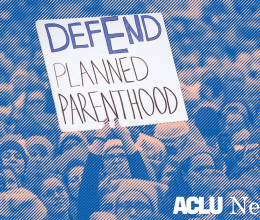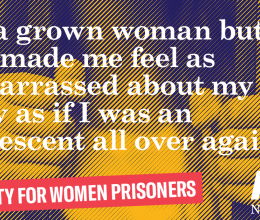
I’m Pregnant…What are my options and how do I make a decision?
If you are pregnant, you have these options:
- continue the pregnancy and become a parent.
- continue the pregnancy and place the baby for adoption.
- end the pregnancy by having an abortion.
To decide what option is best for you, you may choose to talk with your parents, relatives, friends, or a religious leader.
If you aren’t sure what option is best for you, you should discuss it with a trained “all options” counselor or medical provider. The counselor or provider can give you non-judgmental, medically accurate information about all of your options.
You should do your own research about where to go for counseling. Some places that offer pregnancy counseling may seem like all-option clinics, but are actually against abortion. These places are sometimes called “crisis pregnancy centers.” They may not give you medically accurate information and may pressure you into choosing an option you are uncomfortable with.
Whatever option you choose, it is important to get medical care as soon as possible.
Young people need private and safe reproductive and sexual health services – including access to abortion care. In many states, people under 18 don’t need a parent or guardian’s permission to access a range of sensitive health care services, yet those minors seeking safe abortion care are singled out under the law.
Do I Need Permission For an Abortion?
Most young women involve their parents or guardians in their decision to get an abortion, but you may not be able to involve them or you may choose not to involve them. If you are 18 or older, you don’t have to tell anyone about your decision or get anyone’s permission. If you are 17 or younger, many states, including Nebraska, will require you to get consent (permission) in writing from at least one parent or guardian before you can have an abortion. However, laws like this must allow for an exception to the general rule. The most common exception is called a “judicial bypass.
What's a Judicial Bypass?
A judicial bypass is a court order that allows you to have an abortion without getting permission from a parent or guardian. Although the process for getting a judicial bypass order is designed to work quickly, it can take longer than you planned, so it is best to start the process as soon as possible.
The first step in getting a judicial bypass order is filing a “Petition for Waiver of Parental Consent.”
Get a waiver of parental consent form
Nebraska law also requires that every courthouse have this form available and displayed in the open so that you don’t have to ask anyone for it.
Filing the petition means filling out the form and returning it to the clerk of the court either by mailing it in, dropping it off, or faxing it.
It is important to note that you can file the petition in any county in Nebraska. You do not have to file in the county where you live.
You don’t have to worry about typing it up or making it look fancy but do your best to make it easy to read your handwriting.
Do I have to show up in court?
Yes. After you file the petition to get a judicial bypass order, there will be a hearing scheduled. If you go to the hearing and have not yet been assigned a lawyer, ask the judge to assign you one right away because the law says you get a free lawyer to help with your case. You and your lawyer need to present “clear and convincing” evidence to prove the judge should grant your request for a judicial bypass. There are several options you and your lawyer can choose to prove your case.
Option 1: Prove you are sufficiently mature and well-informed to decide whether to have an abortion.
The court describes maturity as “not solely a matter of social skills, level of intelligence or verbal skills.” The court has determined that maturity “calls for experience, perspective, and judgment.”
Examples of Experience the court may consider:
- Prior work experience
- Experience living away from home
- Experience handling your personal finances
Examples of Perspective the court may consider:
- Showing that you understand the seriousness and impact of each option.
- Showing that you understand the short and long-term emotional and physical consequences of getting an abortion.
Examples of Good Judgment the court may consider:
- Being fully informed about your choice and having a sufficient understanding about the procedure itself.
- Past actions
- Being able to weigh your options independently and realistically.
In evaluating your maturity, the court may make conclusions about your maturity by the way you present yourself including your appearance and the way you speak, as well as your ability to express to the judge your reasons for choosing to end your pregnancy. You can talk with your lawyer about what to wear to your hearing.
Option 2: Prove that you cannot tell your parent or guardian because they have abused or neglected you in the past or threatened to do so if you ever got pregnant
Your lawyer will help you determine if you have evidence to use this option for your case.
Option 3: Prove that an abortion without your parent or guardian’s consent would be in your best interest
Your lawyer will help you determine if you have evidence to use this option for your case.
Option 4: Prove that you are emancipated.
Another exception to the general rule requiring you to get your parent or guardian’s permission before getting an abortion is that the judge decides you are emancipated. This is a legal way to describe young people who act like an adult and who are capable of making their own decisions based on the facts of their life or because a court has found them to be emancipated/independent from their parents or guardians.
You generally cannot file anything to be declared emancipated, but the court could make this determination within your judicial bypass case.
You will be considered emancipated if you are married.
Your lawyer will help you determine if you have the evidence to use this option for your case.
What are my rights in court?
As part of the judicial bypass process, you have the right to 5 things.
If you need help getting an attorney to help you with your case:
Contact us
1. Free Lawyer
You have the right to have a lawyer to represent you. You do not have to pay the lawyer. You can get connected with a lawyer who has experience handling these cases in a respectful, professional, and nonjudgmental way by asking the court to appoint one for you. A clinic or health care provider you have been working with may also get you in touch with a lawyer. You can also contact the ACLU Legal Intake to get a referral for a free lawyer. It is important to note that anything you share with your lawyer is confidential, meaning that your attorney cannot tell anyone else what you talk about. It is important that you always tell your lawyer the truth about the facts of your case and that you should ask your lawyer questions if you are confused about the process. Your lawyer is there to help you through the process, prepare you for the hearing in front of the judge, and attend the hearing with you.
2. Guardian ad Litem
The court may or may not appoint a Guardian ad Litem in your case. A Guardian ad Litem is also a lawyer, but their role in the case is very different than your lawyer’s role. Your lawyer acts as you tell them to in the case. Your Guardian ad Litem tells the court what they believe is in your best interest. They are not required to support your position. You should talk with your lawyer before sharing anything with your Guardian ad Litem.
3. Confidentiality and Anonymity
The judicial bypass process will be confidential and you will remain anonymous. You can use your initials or a fake name in the court case. The only people who can be in the court room during your hearing are you, your lawyer, your Guardian ad Litem (if one is appointed), and any person who you and your attorney specifically ask to be there. You can file your petition in any county in Nebraska, so you can work with your lawyer to figure out the best place to file the case that will keep your personal information private.
4. Prompt Decision
You have the right to get a quick decision in your case. After the hearing, the judge is required to make a decision within 7 days. In some cases, the judge will give you his or her decision on the spot at the end of the hearing. If the judge does not decide right away, your lawyer will let you know when a decision is made.
5. Right to Appeal
You have the right to appeal the judge’s decision. If the judge decides that you have not met the requirements to get a judicial bypass order, you can work with your lawyer to appeal (challenge) the judge’s decision and ask for a higher court to review your case.
Make plans for reliable transportation to and from your hearing.
Your lawyer will prepare you for the hearing. They will make sure you are ready for all of the questions they plan to ask you at the hearing. Your lawyer will also prepare you for questions the judge might ask you during the hearing.
The following is a list of things you should be prepared to talk about at the hearing:
- Pros and cons of all alternatives to abortion, and why you have chosen abortion instead of the alternatives.
- All possible side effects and complications of having an abortion.
- Your finances (job, money saved, bank account, etc.)
- Experience you have in managing your finances
- Why you have chosen to have an abortion and why you feel it is the right choice for you.
- Why it is in your best interest not to get your parent’s consent for the procedure (for example, you are worried about your safety)
- Your grades and future plans (for example, do you plan to go to college? What career do you want to have?)
- Any past or present work experience.
- Any experience you have living on your own.
- Any discussions you have had with adults (such as siblings, doctors, counselors etc.) about your options and what conclusions you’ve drawn from these discussions.
- Any other evidence relating to your emotional development, maturity, intellect, and understanding.
- Anything else you feel shows your maturity and that you are aware of the importance of your decision and have fully thought through your options.
Although some of these things may be hard to talk about, the judge is trying to decide if they feel you are mature enough to choose to have an abortion without telling your parents and getting their permission. The judge is also trying to see if you have fully considered all of your options. The judge might ask you about things that are not on this list to help them decide. Practice answering these questions out loud with your lawyer before the hearing to help you calm your nerves and present your case.
More Information
Waiver of Parental Consent for Abortion for Minors forms
NEBRASKA CASE LAW SNAPSHOT: JUDICIAL BYPASS
Planned Parenthood of the Heartland
Information about Parental Consent and Notification Laws
Information about your rights and responsibilities as a young adult in Nebraska
If you need help getting an attorney to help you with your case, contact the ACLU at 1.855.557.ACLU (2258) x101 or gethelp@aclunebraska.org.




